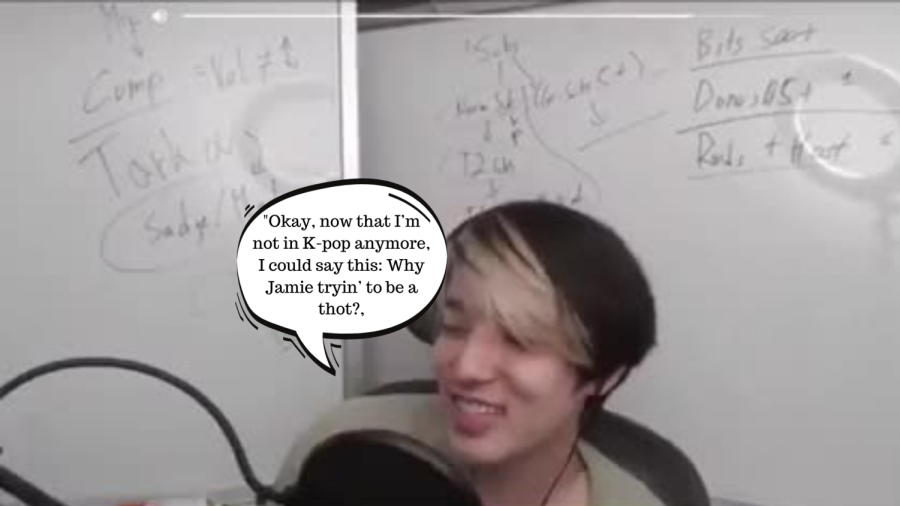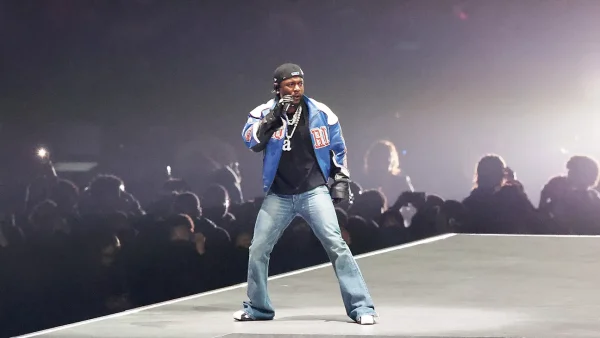Former K-pop star Jae Park calls K-pop star Park Jamie a “thot”
In early January, former K-pop star and ex-Day6’s member Jae Park, also known as eaJ, referred to solo artist Park Jamie, or Park Jimin, as a “thot” on Twitch.
“Okay, now that I’m not in K-pop anymore, I could say this: Why Jamie tryin’ to be a thot?,” said Jae on the livestream. He then proceeded to laugh at his own comment, then telling his viewers to tell Jamie that he said it.
Hurt by the way her close friend called her a “thot”, Jamie spammed her Twitter with emotion.
“I hate that we as women have to be subjected to men’s humor to appease incels on the internet period,” Jamie tweeted on Jan. 9.
While Jae may have laughed after this name-calling incident, comments like these sometimes go beyond “jokes” and into affecting women’s worth.
In an article written by research professor Brené Brown at the University of Houston, she stated that “dehumanization is a process that starts off with language [like calling someone a “thot”] then goes to images next [like leaked pictures].”
Dehumanization leads to violation primarily of one’s human rights. Women have been dehumanized by men for centuries, including through derogatory name-calling, like slut, mistress, thot, and more.
However, in recent years, women have made steps towards overcoming the power that those words hold over them.
In 2011, across the U.S. and Canada, many women took part in the first annual SlutWalk. The SlutWalk was a response to when Toronto police officer commented on how women should not dress like “sluts” to avoid being raped or victimized. Women have been blamed and told it was their fault due to what they wear, and are seen as objects or jokes to some men.
While words like “thot” and “slut” are intentionally used to cause harm, many are unaware that simple everyday words could be just as harmful.
People tend to use the word female when referring to women, but even that could be just as dehumanizing. In an interview with TIME Magazine, linguistics professor Robin Lakoff at the University of California said that “female has always been a bad word.”
“A female can be any species, but only a human can be a woman, so to refer to a woman as a female is to subtly downgrade her to a lower mammalian status,” said Lakoff.
Calling women derogatory names, even simple ones, should not be normalized and can make women feel inferior to men. Women should not be expected to forgive and forget what someone has done or said to them; unfortunately, oftentimes, they feel forced to.
A few weeks after the incident, Jamie revealed that she and Jae had a talk over his “thot” remark. Jae had promised to be more mindful of his words and that the incident was a wakeup call for him.
“If anyone knows about Jae as a friend or close person you would know he wasn’t meaning that as what he said,” Jamie said on Jan. 20, just under two weeks after her initial hurt.
When men are called out for what they did, they say that they have changed, yet still have the same mindset, and actions speak louder than words. Anyone can say that they changed, but not everyone can show that they have changed. Only time will tell if Jae has.
Your donation will support the student journalists of Parkdale High School. Your contribution will allow us to cover our annual website hosting costs and publish some printed editions, as well.

Janet Boualy is a junior at Parkdale High School. This is her first year on staff as she was recommend by friends to take the class. She is a chief copy...







